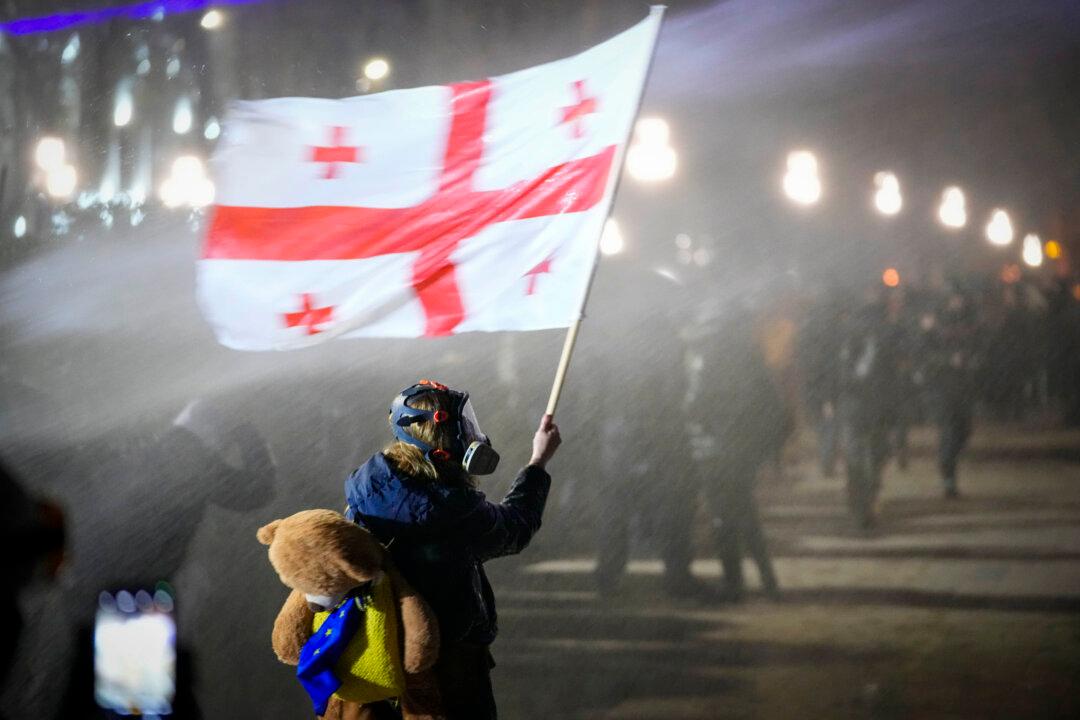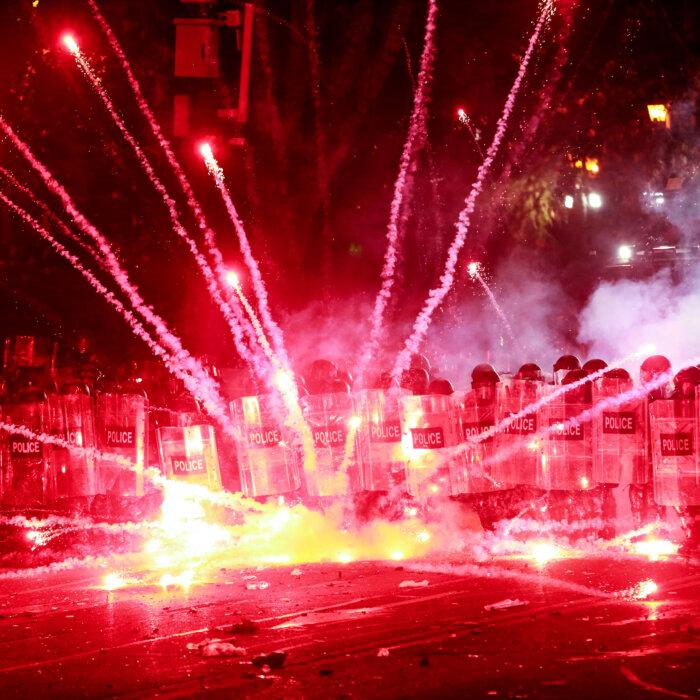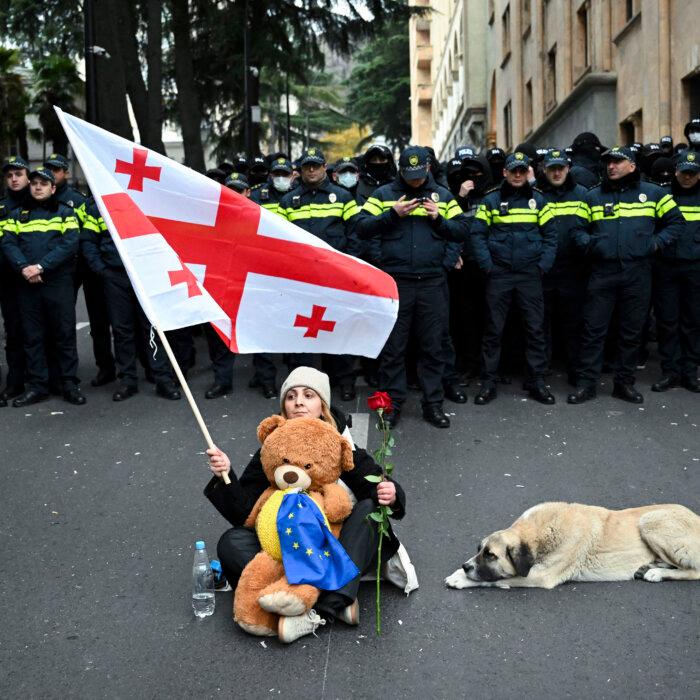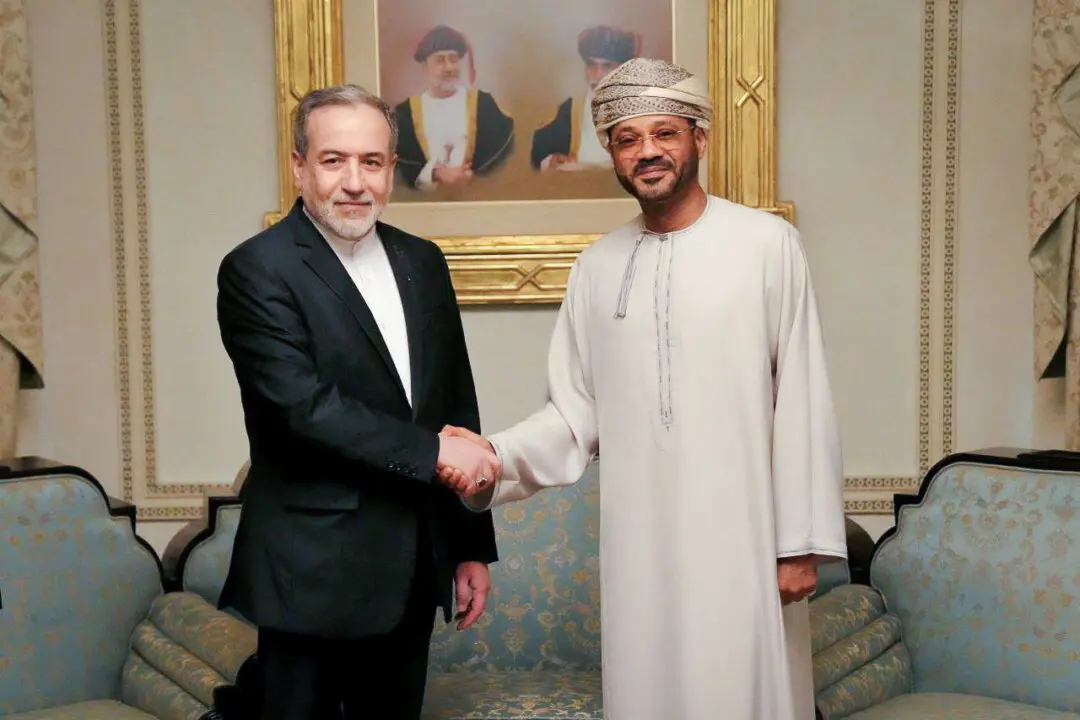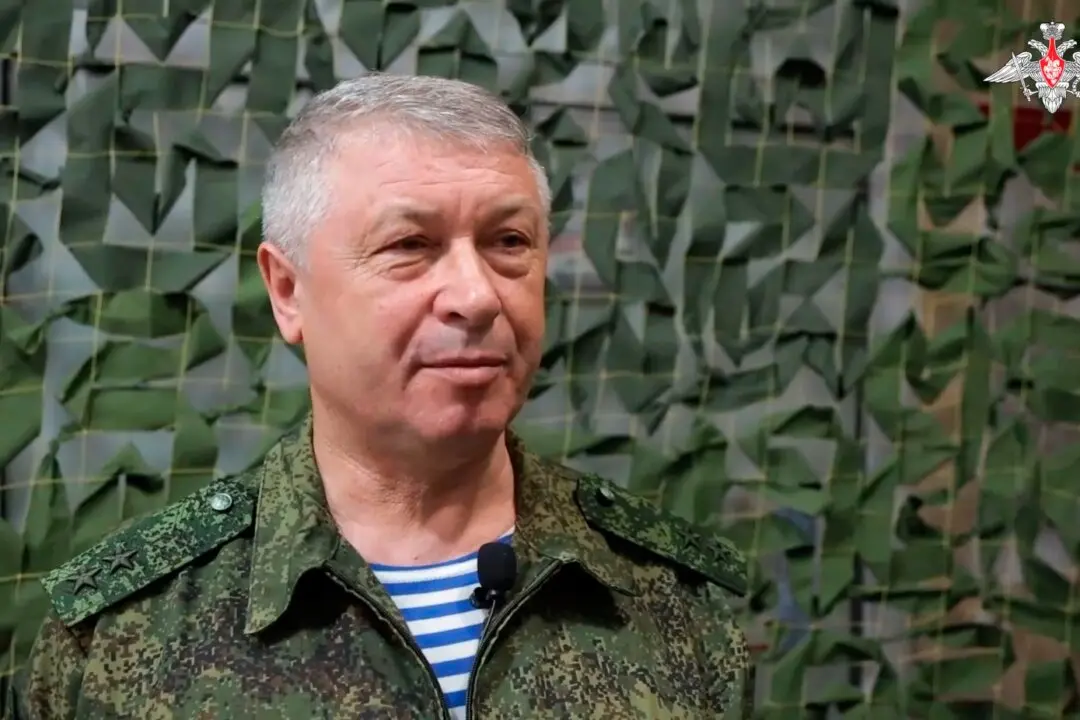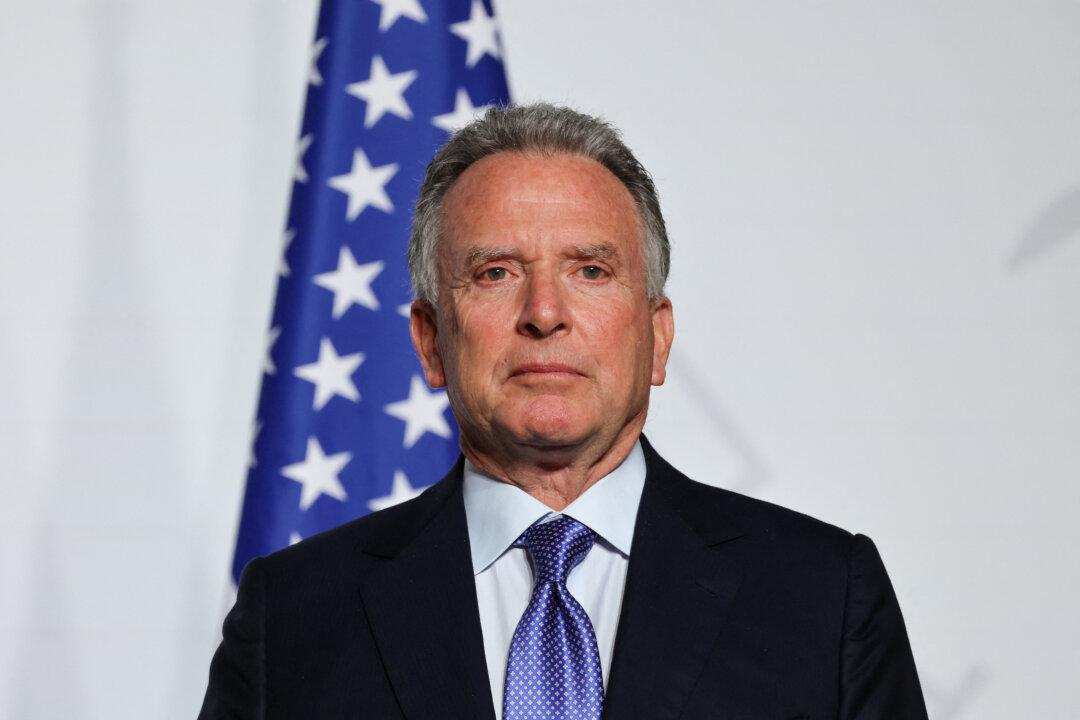A Georgian opposition party leader was arrested on Dec. 4 as protests in the country continued for a seventh consecutive day and night.
Police in Tbilisi, Georgia, raided the offices of the Coalition for Change party and detained its leader, Nika Gvaramia. Authorities in the former Soviet state continued to try to quell the unrest sparked by the government suspending talks to join the European Union.
Over the past six nights, demonstrators throwing fireworks and building barricades on the Georgian capital’s central boulevard were met by riot police using water cannons and tear gas.
More than 300 protesters have been detained since Nov. 28, and more than 100 people have been treated for injuries.
The Coalition for Change opposition party stated that police raided its offices and detained Gvaramia on Dec. 4, sharing footage of several officers apparently dragging Gvaramia into a car.
Local media also reported that police raided offices belonging to several other opposition groups and nongovernmental organizations.
Prime Minister Irakli Kobakhidze said the raids were aimed at people and groups encouraging violence and attempting to topple the government.
“I wouldn’t call this repression; it is more of a preventive measure than repression,” he said.
The ruling Georgian Dream party held control of parliament in the election of Oct. 26, the result of which has been disputed by the party’s opponents.
The October election was widely viewed as a plebiscite on Georgia’s attitude toward the EU.
Opposition parties and the pro-Western president have both accused the Georgian Dream of rigging the polls with Moscow’s help.
The mass protests already underway in the wake of the disputed election gained further impetus after the governing party’s decision last week to put EU accession talks on hold.
President Salome Zourabichvili refused to recognize the election results and contested them in the Constitutional Court, but her appeal was rejected on Dec. 3.
Zourabichvili, whose role is largely ceremonial, has said that she intends to stay on as president, even after her six-year term expires this month, to lead opposition demands for another parliamentary election.
She has urged Georgia’s allies in the West to respond to the Dec. 4 wave of police raids of opposition groups by putting “strong pressure on a ruling party that is driving the country over the cliff!”
“Do not be late!” Zourabichvili wrote on X.
Yesterday, the nation’s public defender accused the police of subjecting Georgians to “torture” amid the arrests.
Levan Ioseliani, whose position is designed to protect citizens’ rights, said people had been subjected to “the harshest treatment” by officers.
Georgia has been one of the most pro-Western former Soviet states, but some say the current government is performing a volte-face and guiding the nation back into Moscow’s orbit.
The country was granted candidate status by the EU in December 2023 on condition that it meet the bloc’s terms.
However, its accession was put on hold and financial support from Brussels was axed in June after a “foreign influence” law was passed.
The legislation, which critics have labeled a blow to democratic freedoms, requires organizations that receive more than a fifth of their funding from beyond Georgia’s borders to register as “pursuing the interest of a foreign power.”
It is similar in its construction to a law instituted by the Kremlin in 2012, which opponents of Russian President Vladimir Putin say is largely used to smear organizations critical of his government.
The opposition in Tbilisi accuses the Georgian Dream-led government of doing the same thing, but the government says the laws are necessary to defend Georgia’s sovereignty.
